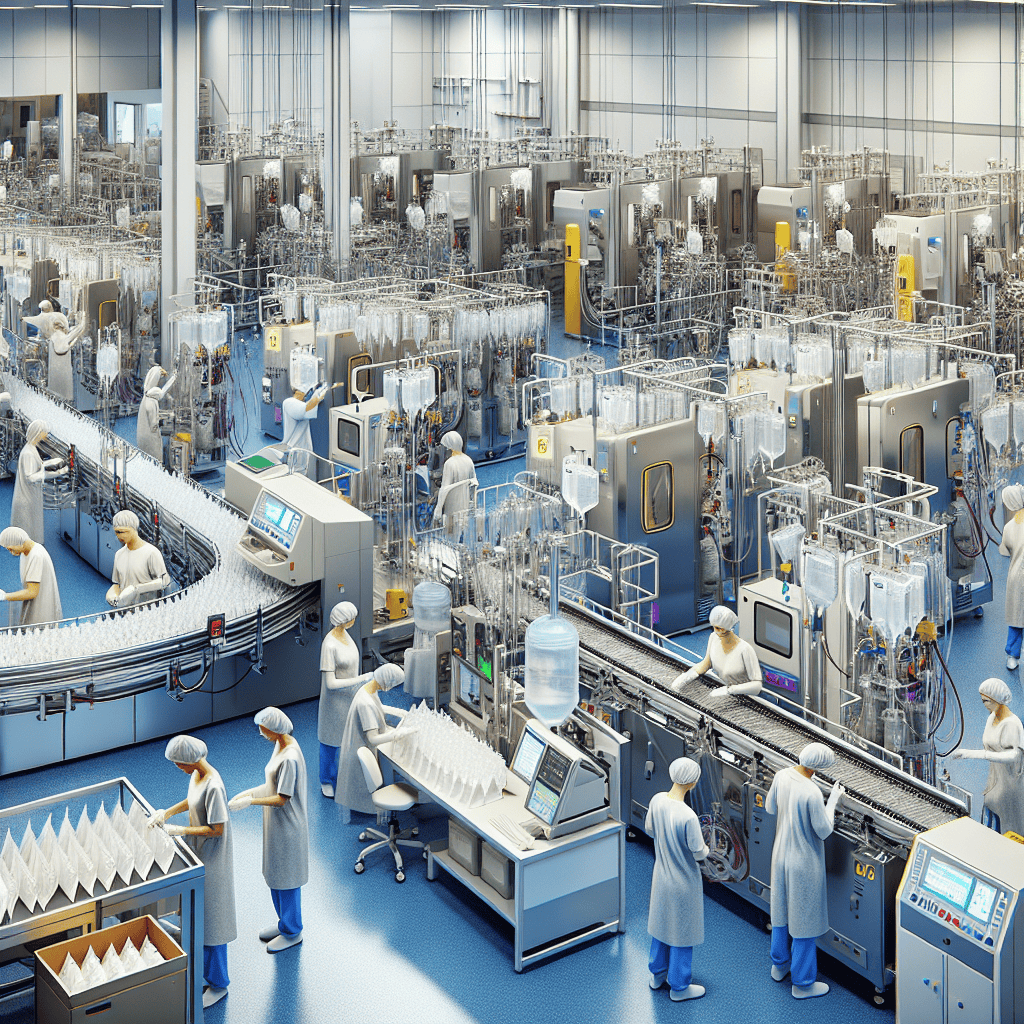Fresenius Medical Care Boosts IV and Dialysis Solutions Production to Address Shortages

In recent years, the healthcare industry has faced numerous challenges, including shortages of critical medical supplies. Among the most pressing issues are the shortages of intravenous (IV) solutions and dialysis products, which are essential for patient care. Fresenius Medical Care, a global leader in dialysis products and services, has taken significant steps to address these shortages by ramping up production. This article explores the various facets of Fresenius Medical Care’s efforts, the impact of these shortages, and the broader implications for the healthcare industry.
Understanding the Shortages: Causes and Consequences
The shortages of IV and dialysis solutions have been a growing concern for healthcare providers worldwide. These shortages can be attributed to several factors, including increased demand, supply chain disruptions, and manufacturing challenges. Understanding these causes is crucial to addressing the problem effectively.
Increased Demand for IV and Dialysis Solutions
The demand for IV and dialysis solutions has surged in recent years due to several factors. The aging global population has led to an increase in chronic diseases such as diabetes and hypertension, which often require dialysis treatment. Additionally, the COVID-19 pandemic has further strained healthcare resources, leading to increased demand for IV solutions in hospitals and clinics.
According to a report by the World Health Organization, the prevalence of chronic kidney disease has increased by 30% over the past decade, driving up the need for dialysis treatments. This trend is expected to continue, further exacerbating the demand for dialysis solutions.
Supply Chain Disruptions
Supply chain disruptions have played a significant role in the shortages of IV and dialysis solutions. The global supply chain has been affected by various factors, including natural disasters, geopolitical tensions, and the COVID-19 pandemic. These disruptions have led to delays in the production and distribution of medical supplies, including IV and dialysis solutions.
For example, the COVID-19 pandemic caused widespread lockdowns and restrictions, leading to delays in the transportation of raw materials and finished products. This has resulted in a backlog of orders and increased lead times for healthcare providers.
Manufacturing Challenges
Manufacturing challenges have also contributed to the shortages of IV and dialysis solutions. The production of these solutions requires specialized equipment and facilities, which can be costly and time-consuming to set up. Additionally, regulatory requirements for the production of medical supplies are stringent, further complicating the manufacturing process.
Fresenius Medical Care has faced its own set of manufacturing challenges, including the need to expand production capacity and ensure compliance with regulatory standards. However, the company has made significant investments in its manufacturing facilities to address these challenges and increase production.
Impact on Healthcare Providers and Patients
The shortages of IV and dialysis solutions have had a significant impact on healthcare providers and patients. Hospitals and clinics have been forced to ration supplies, leading to delays in treatment and increased stress on healthcare workers. Patients, particularly those with chronic conditions, have faced disruptions in their care, which can have serious consequences for their health.
A study published in the Journal of the American Medical Association found that shortages of dialysis solutions have led to increased hospitalizations and mortality rates among patients with chronic kidney disease. This highlights the urgent need for solutions to address these shortages and ensure that patients receive the care they need.
Fresenius Medical Care’s Response to the Shortages
In response to the shortages of IV and dialysis solutions, Fresenius Medical Care has taken several steps to increase production and ensure a steady supply of these critical products. The company’s efforts include expanding manufacturing capacity, investing in new technologies, and collaborating with other industry stakeholders.
Fresenius Medical Care has announced plans to invest over $500 million in expanding its manufacturing facilities and increasing production capacity. This includes the construction of new facilities and the expansion of existing ones, as well as the implementation of advanced manufacturing technologies to improve efficiency and reduce lead times.
Fresenius Medical Care’s Strategic Initiatives
Fresenius Medical Care has implemented a series of strategic initiatives to address the shortages of IV and dialysis solutions. These initiatives are designed to enhance production capabilities, streamline supply chains, and foster innovation in product development.
Expansion of Manufacturing Facilities
One of the key components of Fresenius Medical Care’s strategy is the expansion of its manufacturing facilities. The company has identified several locations for new facilities and is in the process of expanding existing ones. This expansion is aimed at increasing production capacity and ensuring a steady supply of IV and dialysis solutions.
The new facilities are equipped with state-of-the-art technology and are designed to meet the highest standards of quality and safety. This includes the implementation of advanced manufacturing processes and the use of automation to improve efficiency and reduce production times.
Investment in Advanced Manufacturing Technologies
Fresenius Medical Care is also investing in advanced manufacturing technologies to enhance its production capabilities. This includes the use of digital technologies such as artificial intelligence and machine learning to optimize production processes and improve product quality.
The company is also exploring the use of 3D printing and other innovative technologies to develop new products and improve existing ones. These technologies have the potential to revolutionize the production of IV and dialysis solutions, making them more efficient and cost-effective.
Collaboration with Industry Stakeholders
Collaboration with industry stakeholders is another key component of Fresenius Medical Care’s strategy. The company is working closely with suppliers, distributors, and healthcare providers to ensure a steady supply of IV and dialysis solutions.
Fresenius Medical Care is also collaborating with regulatory authorities to streamline the approval process for new products and ensure compliance with industry standards. This collaboration is essential to ensuring that the company’s products meet the highest standards of quality and safety.
Focus on Research and Development
Research and development (R&D) is a critical component of Fresenius Medical Care’s strategy to address the shortages of IV and dialysis solutions. The company is investing heavily in R&D to develop new products and improve existing ones.
Fresenius Medical Care’s R&D efforts are focused on developing innovative solutions that address the needs of patients and healthcare providers. This includes the development of new dialysis machines, IV solutions, and other products that improve patient outcomes and reduce the burden on healthcare providers.
Commitment to Sustainability
Sustainability is a key focus for Fresenius Medical Care as it seeks to address the shortages of IV and dialysis solutions. The company is committed to reducing its environmental impact and ensuring that its products are produced in a sustainable manner.
Fresenius Medical Care is implementing a range of initiatives to reduce its carbon footprint and minimize waste. This includes the use of renewable energy sources, the implementation of energy-efficient manufacturing processes, and the reduction of packaging waste.
The Role of Technology in Enhancing Production
Technology plays a





